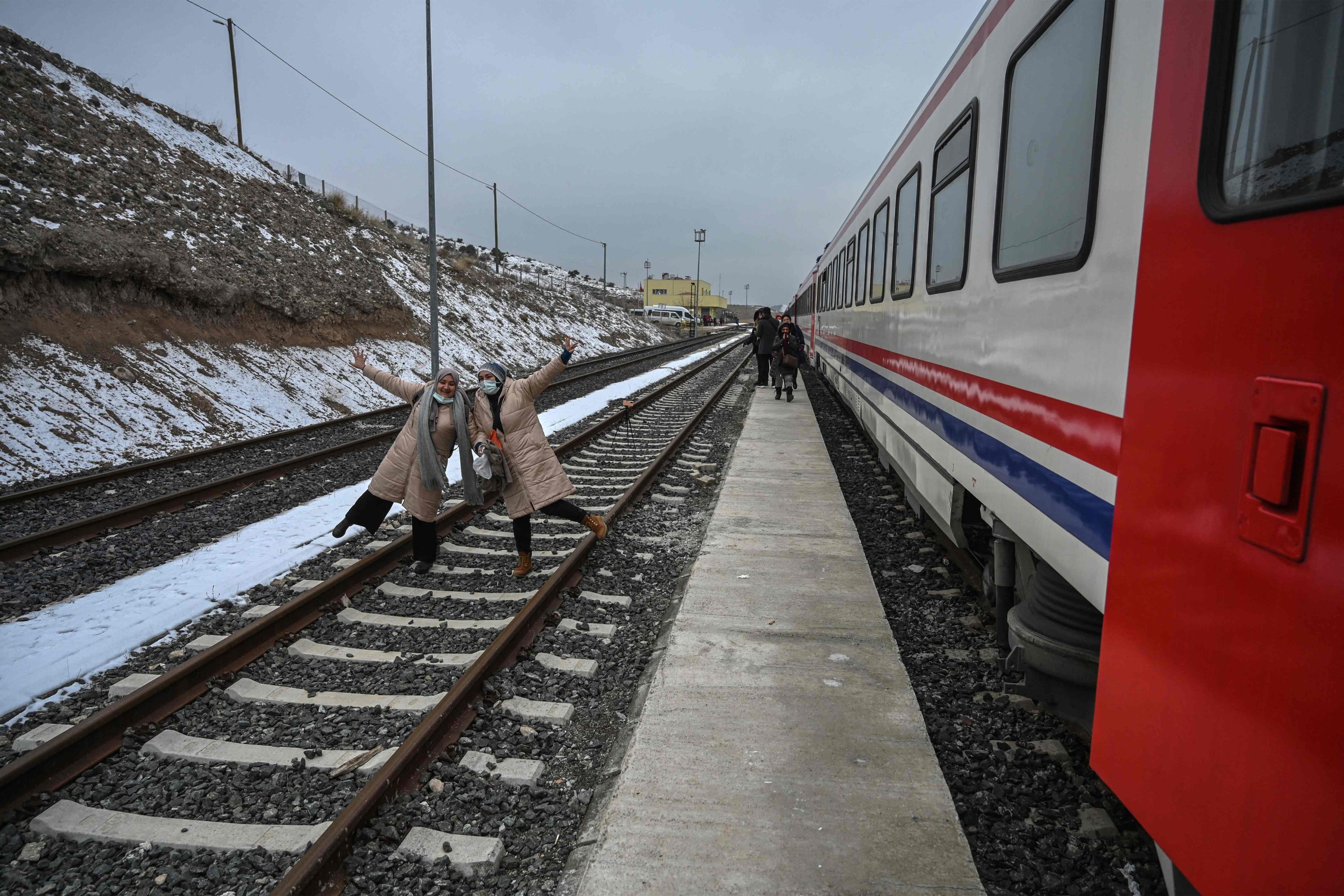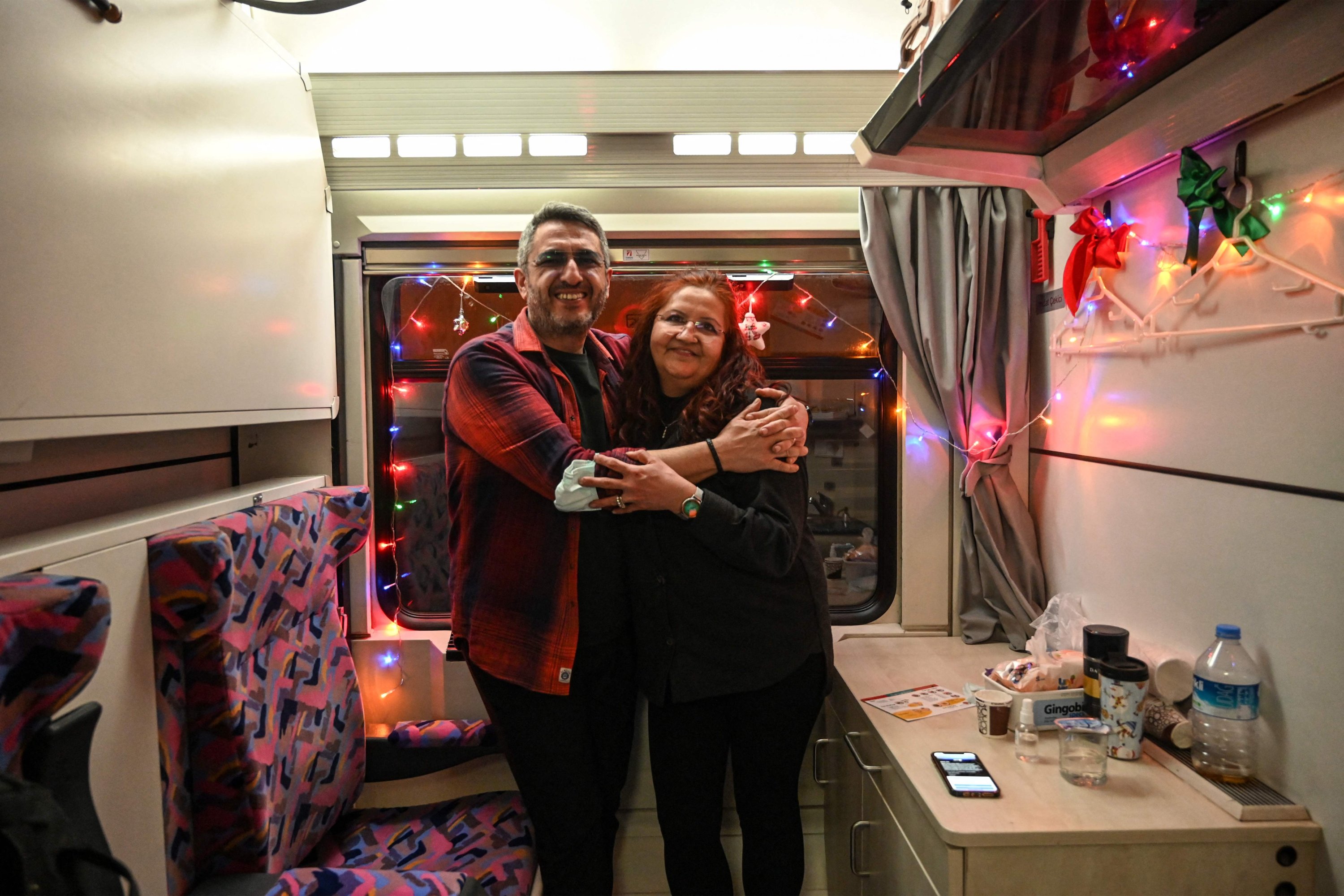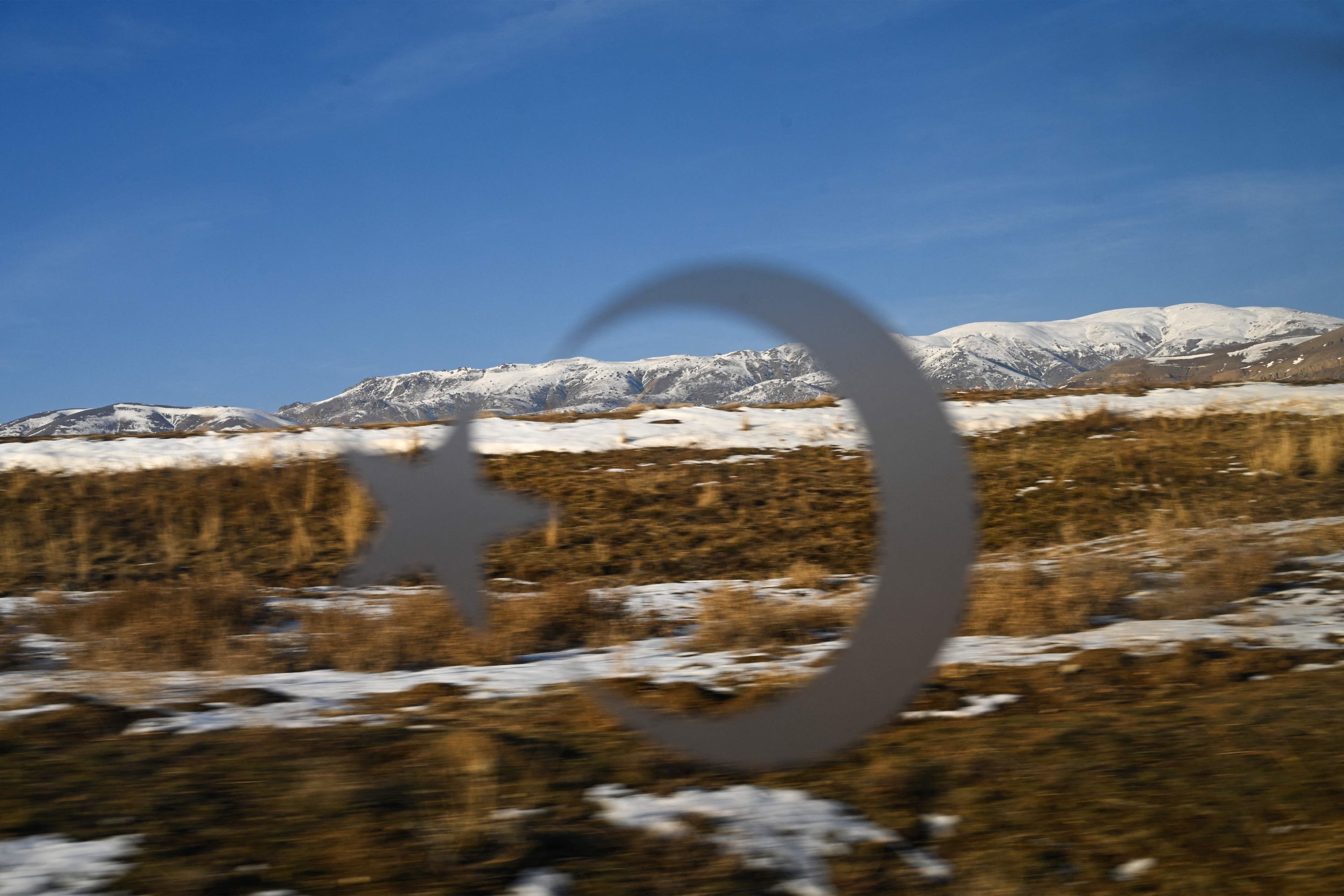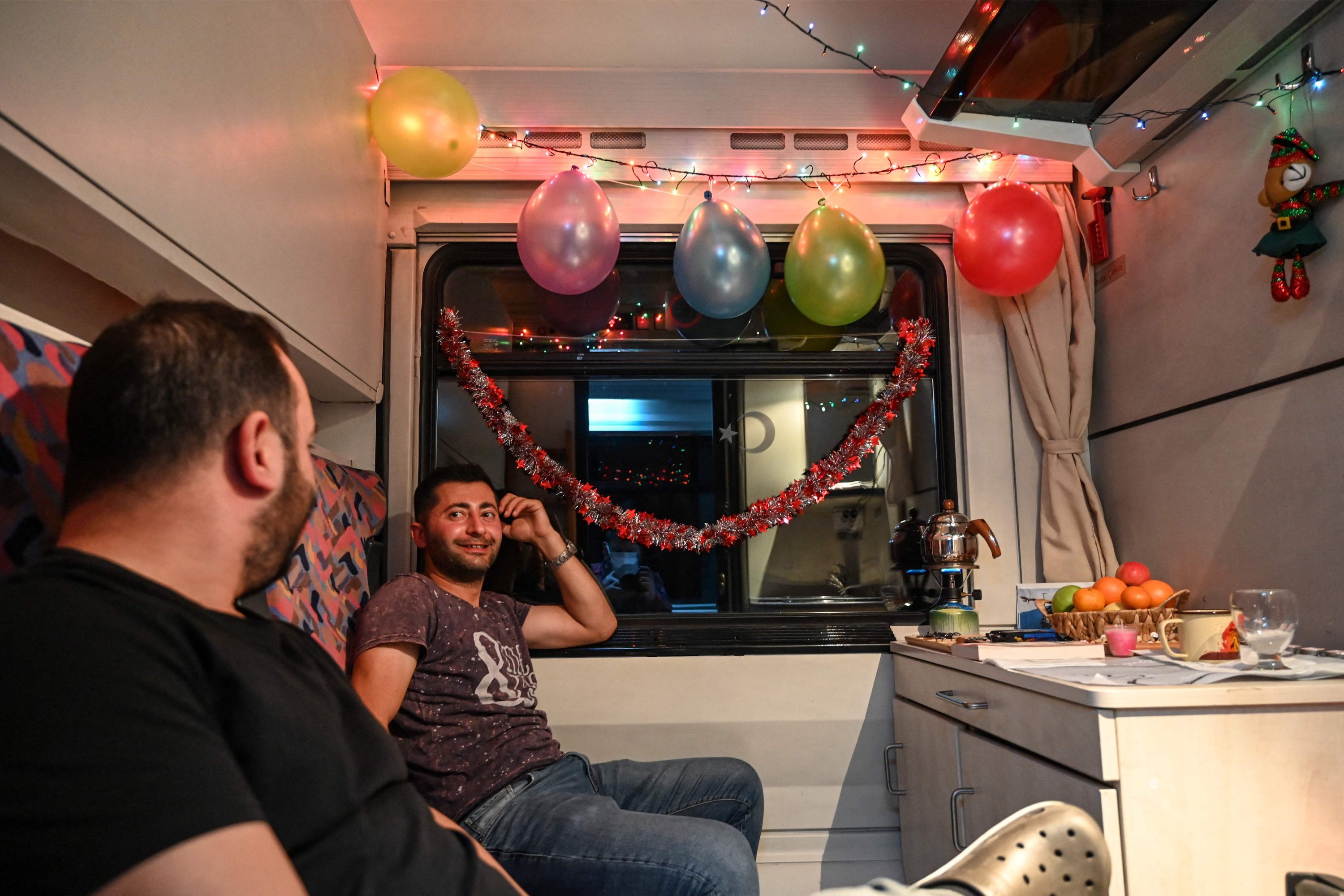© Turkuvaz Haberleşme ve Yayıncılık 2026
Festive garland and white tablecloths appear the moment passengers board the famed Eastern Express for an epic journey across Turkey’s snow-capped Euphrates plateaus.
Named the Turistik Doğu Ekspresi locally, the train offers one of the expansive country’s most coveted new experiences.
Its nine carriages wind their way around mountain bends on a 24-hour, 1,300-kilometer (800-mile) voyage from the capital Ankara to Kars, an ancient eastern city near Turkey’s rugged border with Armenia and Georgia.
The service was suspended less than a year after starting because of the coronavirus pandemic. But with restrictions easing, the sleeper is back. Tickets, though relatively pricey, are snapped up in minutes.
“The Ankara-Kars line is considered by travel writers to be one of the four most beautiful train lines in the world,” Turkish State Railways director Hasan Pezuk told the Agence France-Presse (AFP).
“It is really a very special moment for me and my family,” says Zulan-Nour Kömürcü, 26, who is celebrating her birthday with them on board.
“It’s my present,” smiles the brunette, who has decorated her cabin with purple lights, hung a furry wreath on the door and set out biscuits and a porcelain teapot on an embroidered tablecloth.

Until a few years ago taking the 24-hour train ride for more than a 1,300-kilometer trip – instead of a plane journey of little over an hour – would have been considered madness, despite the ridiculously cheap price of TL 45 ($11).
Things changed when a group of young Turkish tourists decided to do away with speed and booked sleeping car reservations on the train. Naturally, they shared the experience on social media.
From that point onward, the train became a venue for fun, adventure, socializing and new experiences.
The train runs twice a week from Dec. 30 to March 31 to make the most of the snow-covered landscapes. Its route is a miniature version of Russia’s Trans-Siberian railway, says engineer Fatih Yalçın.
“There is always something to fix,” he says, his head deep inside an electrical cabinet.
“Last week it was minus 24 degrees Celsius (minus 11 degrees Fahrenheit) ... The water was freezing,” he says, adding that it sometimes falls to minus 40 degrees Celsius.
“I intervene when required and without disturbing the passengers. Seeing them happy is a real pleasure for me.”
Depending on the compartment, there are prayers or alcohol.
In the dining car, revelers can feast through the night under a nightclub-style mirror ball.

This is where Ilhemur Irmak and her retired friends meet for tea as the sun sets in a blaze of color. The 40 women hail from Bursa, a western province on the Sea of Marmara.
“We’re in retreat from our husbands and our fathers,” says Irmak, triggering laughter all round.
Like most passengers, they embarked with their own provisions: a veritable feast of specialties and sweets.
Another faster and less festive train runs along the same route in around 20 hours, without the scenic stops.
But this train was designed for the sheer joy of traveling through spectacular but hard-to-access provinces such as Kayseri, Sivas, Erzincan and Erzurum.

On the way it passes through farmland, hills and woods, crossing rivers swollen by snow melting in the spring sunshine and passing through long dark tunnels carved through mountains.
The Eastern Express features seated and sleeping coaches with toilets, a mini-refrigerator and a table.
Apart from some locals, who take the train for a short distance between stations, most passengers now are people from far corners of Turkey making the full trip between Ankara and Kars.
Lawyer Yörük Giriş and his two friends have made sure their supplies last until the end. They have also brought out a plaster snowman, candles and a portable speaker blasting out Turkish rock.
“It was an old dream,” the smiling 38-year-old says, swaying. “We had to make something joyful out of it. We prepared a lot.”
As the evening turns to night, people begin meeting up in the corridor to share music and dance. Among them, two couples in their fifties, “friends since high school,” intend to “have a good time together.”
One of them, Ahmet Çavuş, admits feeling “nostalgia” for the train rides of his youth.
“We revisit the journeys we made as children with our grandparents,” Çavuş says.
The train brings together an array of Turkish society, with people of all ages and styles, from the reserved to the unrestrained.

In Erzurum, the last stop before Kars at an altitude of 1,945 meters (6,381 feet), several passengers perform a traditional dance on the frozen platform, with backing from the tea vendor’s crackling radio.
The station’s thermometer shows minus 11 degrees Celsius but no one looks discouraged.
Resigned, the train conductor delays the departure for Kars with a smile, waving his torch in rhythm.
